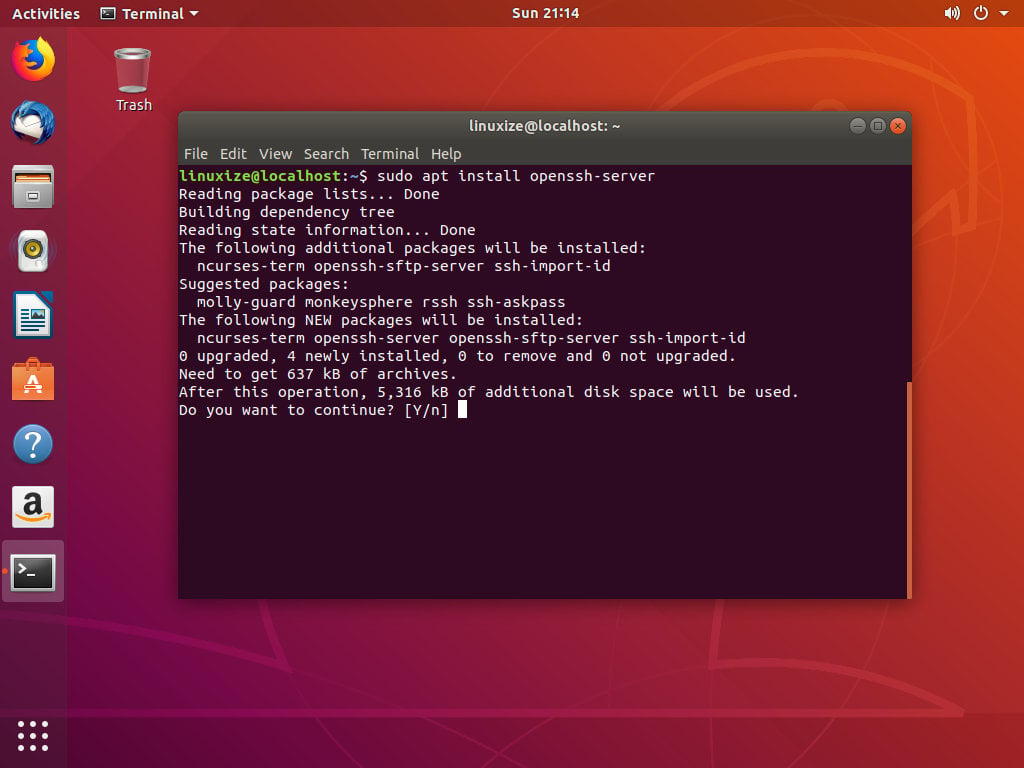

- #MAC SSH SERVER UPDATE UPDATE#
- #MAC SSH SERVER UPDATE UPGRADE#
- #MAC SSH SERVER UPDATE SOFTWARE#
- #MAC SSH SERVER UPDATE CODE#
In short note: we can then update the value for MACs below in the /etc/ssh/sshd_config and restart the SSHD service on the destination system.

In referencing the prior Article I had on SSH/SSHD service configuration you can then update the /etc/ssh/sshd_config file for the value: MACs to then specify the difference for the systems. We can then get a list of hmac like the output with the above you now have the updated list of HMACs. Sent hmacs on Avamar final step is to then take the few matching hmacs and add it to the current list of available hmacs. Source HMACSĪll Possible HMACs on given the above, we have the lists: I purposely left them identified across the lines currently so we can see which hmacs in red would potentially work. debug2: kex_parse_kexinit: kex_parse_kexinit: given that output we have the listed hmacs below from the client, current SSHD service and destination. debug2: kex_parse_kexinit: kex_parse_kexinit: the sent section from the same destination machine, you can see the entire list of all available hmacs (unless restricted in the configuration). To do this you can run: sshd -vvv localhost and you’ll get output like before and we’ll then get the list of hmacs from the system hosting the SSHD service. In either case once logged in we can then run a similar test with the SSH connection.

To do this, we can try an updated SSH program, another machine, KIPMI, RMM or Console through a hypervisor or locally. If unsure of the impact to updating the OpenSSH library then you can further check what options the remote system has and if it can enable a matching protocol.įrom the earlier output we then have the output below which shows the hmacs the client has available to use: debug2: kex_parse_kexinit: next step to check this is to go to the remote machine we had failures to login to. In a preliminary sense, the most likely fix would be to update the OpenSSH on the system that has the problem authenticating (or an operating system update).
#MAC SSH SERVER UPDATE CODE#
The remote system is on a much newer code version and the machine I was trying to SSH from had a significantly older SSH version that couldn’t communicate/match the HMACs between the two systems (this could end up being ciphers, key algorithms, bit length or other various flags). This is at least preliminarily the first red flag.
#MAC SSH SERVER UPDATE SOFTWARE#
This helps to confirm the OpenSSH is version 4.3p2 on the system and further below we have the destination system’s version: debug1: Remote protocol version 2.0, remote software version OpenSSH_6.6.1Īnd from there we have the OpenSSH 6.6.1 version on the system. As a result the general option to review this or why is to then go through the ssh -vvv output tests from my last article below.įrom there and using the output for the connectivity we can then use the ssh -vvv IP_HERE to check/test the connection from the client machine (assuming this is from a Linux client).įrom there we have the output below: ssh -vvv OpenSSL 0.9.8e-fips-rhel5 ĭebug1: Reading configuration data /etc/ssh/ssh_configĭebug1: Connecting to DESTINATION_COMPUTER port 22.ĭebug1: identity file /usr/home/admin/.ssh/identity type -1ĭebug1: identity file /usr/home/admin/.ssh/id_rsa type -1ĭebug1: identity file /usr/home/admin/.ssh/id_dsa type -1ĭebug1: Remote protocol version 2.0, remote software version OpenSSH_6.6.1ĭebug1: match: OpenSSH_6.6.1 pat OpenSSH*ĭebug1: Enabling compatibility mode for protocol 2.0ĭebug1: Local version string SSH-2.0-OpenSSH_4.3ĭebug2: kex_parse_kexinit: diffie-hellman-group-exchange-sha1,diffie-hellman-group14-sha1,diffie-hellman-group1-sha1ĭebug2: kex_parse_kexinit: ssh-rsa,ssh-dssĭebug2: kex_parse_kexinit: kex_parse_kexinit: kex_parse_kexinit: kex_parse_kexinit: kex_parse_kexinit: there we can break this down in a few pieces of information.įor starters we have the very start of the output with: ssh -vvv OpenSSL 0.9.8e-fips-rhel5
#MAC SSH SERVER UPDATE UPGRADE#
When trying to login to a system via SSH remotely after an upgrade (presumably due to updates to the code/security settings) I was getting errors like the below output: bash-3.2$ ssh matching mac found: client server the above the SSH connection was failing.


 0 kommentar(er)
0 kommentar(er)
